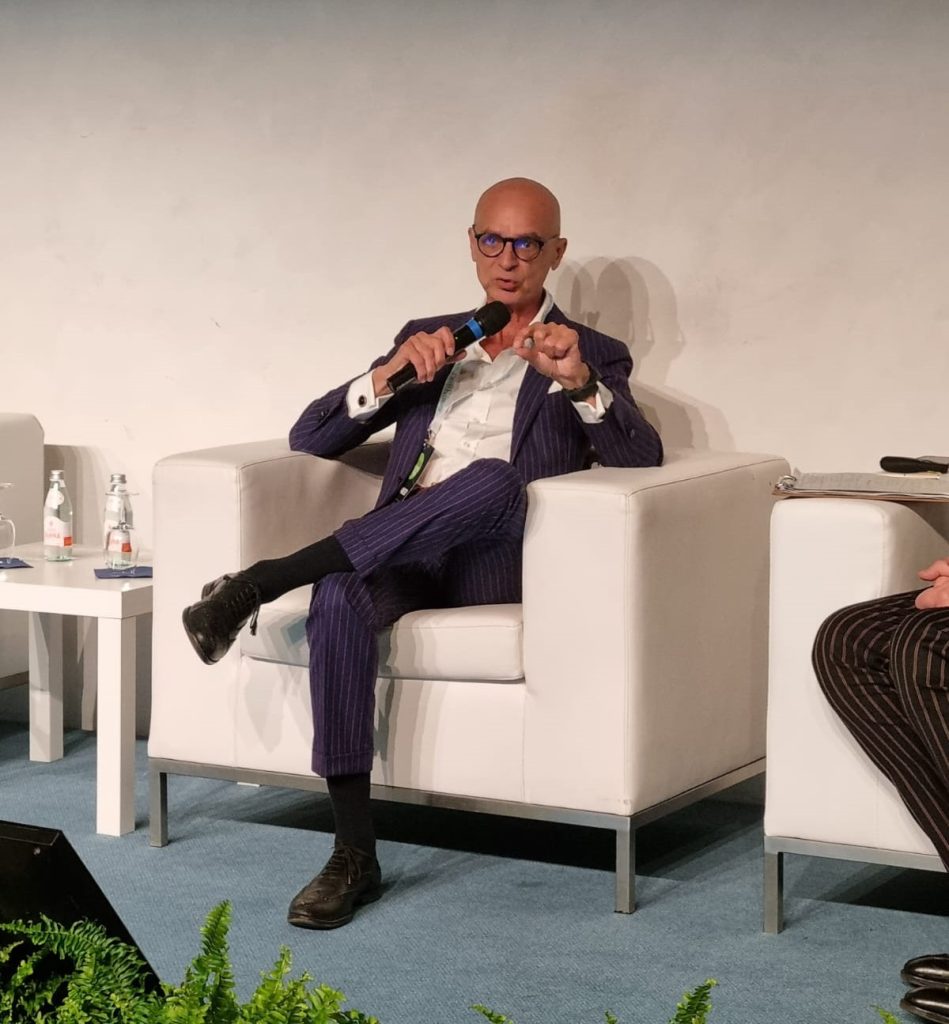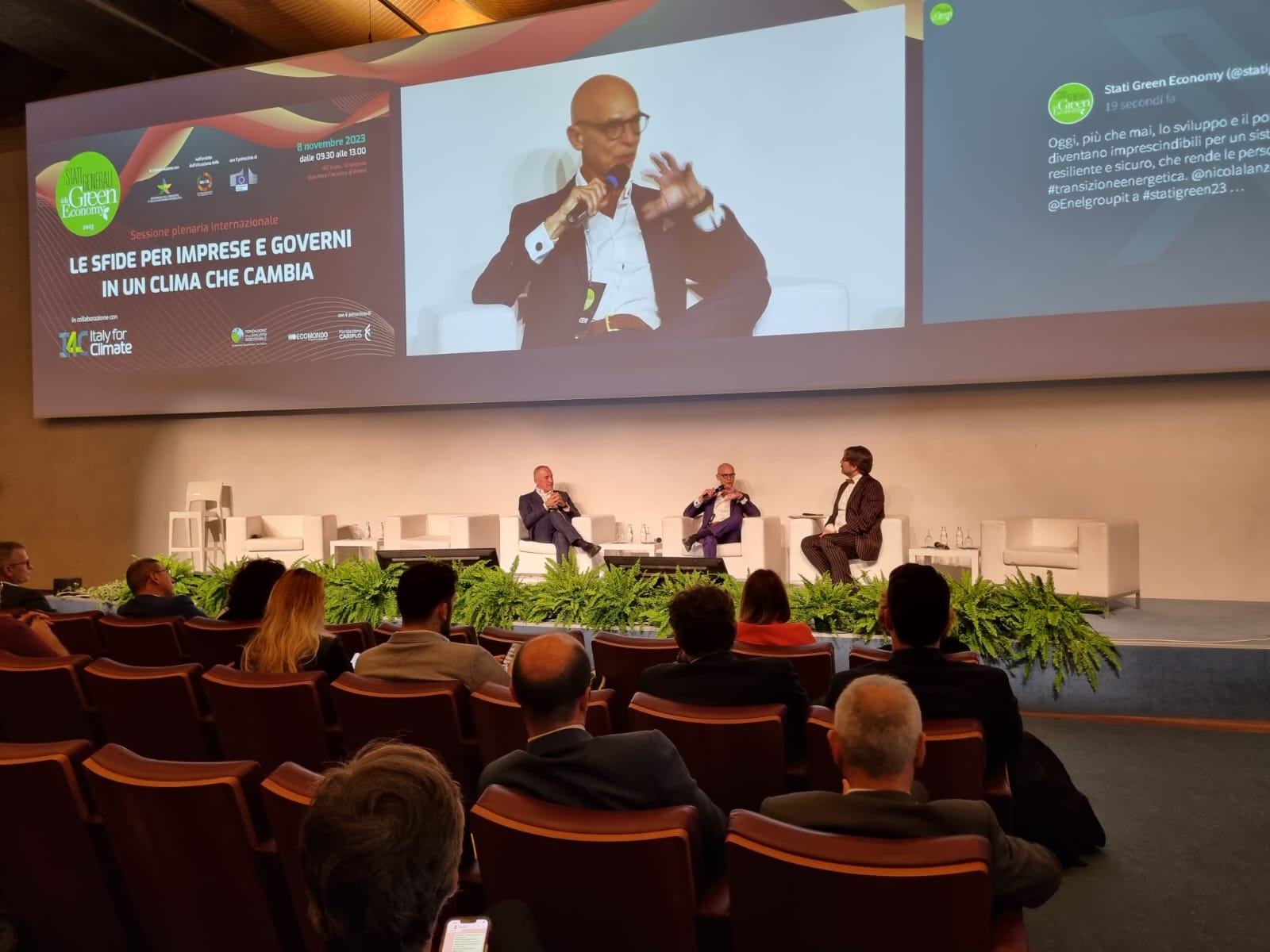Decarbonised, circular and regenerative: this is how the economy of tomorrow should be. Current policies, however, are struggling to keep pace with climate change and technological developments.
The international plenary session of the twelfth edition of the States General of the Green economy, ‘Challenges for business and governments in a changing climate‘, on 8 November, offered a window on the world, sharing the latest global trends with focuses on China, the USA, Europe and Italy and their position in the ecological transition process.

At the international session, alongside Nicola Lanzetta (Enel Group) and Renato Mazzoncini (A2A), this year our AD Francesco Galanzino was also invited to speak on the panel entitled ‘Let’s power the transition‘. The presence of Entsorga, as Galanzino commented, testifies to the fact that “today there is a real possibility of access to energy for everyone“. An energy democracy that bodes well for a truly more sustainable future.
But what are the global scenarios? The world’s big three economies, China, the US and the EU, the largest emitters of greenhouse gases, have embarked on substantial investments and programmes to achieve ‘net zero‘.
China rises to first place for green transition investments (546 billion), accounting for more than half of global investments. It also ranks first in the construction of renewable plants and the sale of e-cars.
The US is investing $140 billion in the green transition and has allocated more than $500 billion for energy security and transition, particularly on batteries and renewables, green transport and e-mobility, and carbon capture and storage.
The European Union, which has already reduced its emissions by an average of 30 per cent, is bidding to be the first carbon-free continent and is in fact the second largest economy in terms of investment in the ecological transition with $180 billion by 2022.
And Italy? Despite a better performance than the average of European countries, our scenario deviates from the framework of the objectives defined at European level. Italy is the second country in Europe for greenhouse gas emissions, after Germany, with 418 million tonnes of CO2 produced. It therefore bears a great responsibility on its shoulders. In the last ten years, moreover, there has been a slowdown in the reduction of these emissions and thus in the general process of decarbonisation of the Italian economy, which is stuck at -20%.
An abrupt acceleration is therefore needed to shape a truly green economy of tomorrow. Indeed, the goal remains ambitious and challenging: to reach net zero worldwide in 2050. A goal that implies for companies to commit to reducing not only their own carbon emissions, but also indirect emissions, from upstream suppliers to end users.
Transition is now an imperative, and for a country like ours it is difficult to postpone. Indeed, we live in a climate hotspot, where temperatures are rising much faster than the global average and the effects of global warming are more intense. But we are also a leader in the green economy, with above-average expertise and innovative technologies. For us, decarbonisation is challenging, but now it is not only feasible, it is affordable.
This in fact emerged clearly from this plenary session. The ecological transition is now not only necessary, but has also become cost-effective, a process whose benefits outweigh its costs.
At this link you can find Francesco Galanzino’s speech
Here is the link to all downloadable documents of the event

